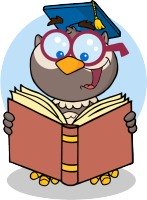Homeschool Reading Curriculum for 4th Grade
A homeschool reading curriculum for 4th grade includes advanced comprehension strategies, diverse genres, critical thinking skills, complex texts, guided reading sessions, literary elements exploration, and develops advanced literacy skills and appreciation for literature.
Homeschool Reading Curriculum for 4th Grade Sample
Weeks 1-4: Advanced Comprehension Strategies
- Focus on advanced comprehension strategies such as inference, prediction, and summarization.
- Discuss the importance of context clues in understanding unfamiliar words.
- Introduce short texts that require critical thinking.
Weeks 5-8: Vocabulary Enrichment and Word Analysis
- Expand vocabulary through the exploration of synonyms, antonyms, and homophones.
- Analyze word roots, prefixes, and suffixes to enhance word analysis skills.
- Engage in vocabulary-building activities and games.
Weeks 9-12: Literary Elements and Analysis
- Explore literary elements like symbolism, foreshadowing, and imagery.
- Analyze short stories or excerpts from novels, discussing their impact on the narrative.
- Introduce the concept of theme in literature.
Weeks 13-16: Historical Fiction Study
- Select historical fiction novels for an in-depth study.
- Discuss the chosen novels' historical context, characters, and themes.
- Encourage comparisons between historical events and fictional portrayals.
Weeks 17-20: Genre Exploration - Mystery and Adventure
- Dive into the mystery and adventure genres.
- Read and analyze novels within these genres, exploring plot twists and character development.
- Encourage discussions about solving mysteries within the texts.

Weeks 21-24: Biographies and Autobiographies
- Introduce biographies and autobiographies of notable individuals.
- Discuss the narrative structure of these texts and the importance of personal narratives.
- Encourage reflections on the impact of individuals' lives on history.
Weeks 25-28: Poetry Appreciation and Analysis
- Explore various forms of poetry, including sonnets, haikus, and free verse.
- Analyze poems for figurative language and poetic devices.
- Encourage students to create their poems.
Weeks 29-32: Novel Study - Fantasy Genre
- Select a fantasy novel for an in-depth study.
- Discuss world-building, character arcs, and thematic elements.
- Encourage imaginative reflections on the fantastical elements.
Weeks 33-36: Review and Culminating Project
- Review critical concepts learned throughout the year.
- Culminate the curriculum with a comprehensive literary analysis project or presentation.
- Celebrate the achievements and progress made in reading.
Adapt this sample of homeschool reading curriculum for 4th grade to your child's readiness and interests. Incorporate interactive activities, discussions, and creativity to enhance learning.

Homeschool Reading Curriculum for 4th Grade Time Spent
For 4th-grade homeschoolers, suggested daily reading activities should take approximately 60 to 75 minutes and include various reading-related tasks.
1. Daily Reading Aloud (20-25 minutes):
- Start a read-aloud session using more complex and engaging literature each day.
- Discuss the story, characters, and encourage questions.
2. Vocabulary and Word Analysis (10-15 minutes):
- Focus on vocabulary enrichment and word analysis skills through interactive activities.
- Engage in word games, discussions, and exercises.
3. Guided Reading and Comprehension (20-25 minutes):
- Implement guided reading sessions with more challenging leveled books.
- Emphasize advanced comprehension strategies and critical thinking discussions.
4. Independent reading (10-15 minutes):
- Encourage independent reading with age-appropriate novels or non-fiction texts.
- Allow the child to choose books based on personal interests.
5. Literary Exploration and Projects (5-10 minutes):
- Introduce literature-related activities, such as discussions, projects, or creative responses.
- Encourage the child to reflect on and explore themes in the readings.
Customize reading recommendations based on the child's needs. Be flexible and create a positive reading environment. Tailor texts to their interests and gradually increase complexity to challenge and develop skills.


